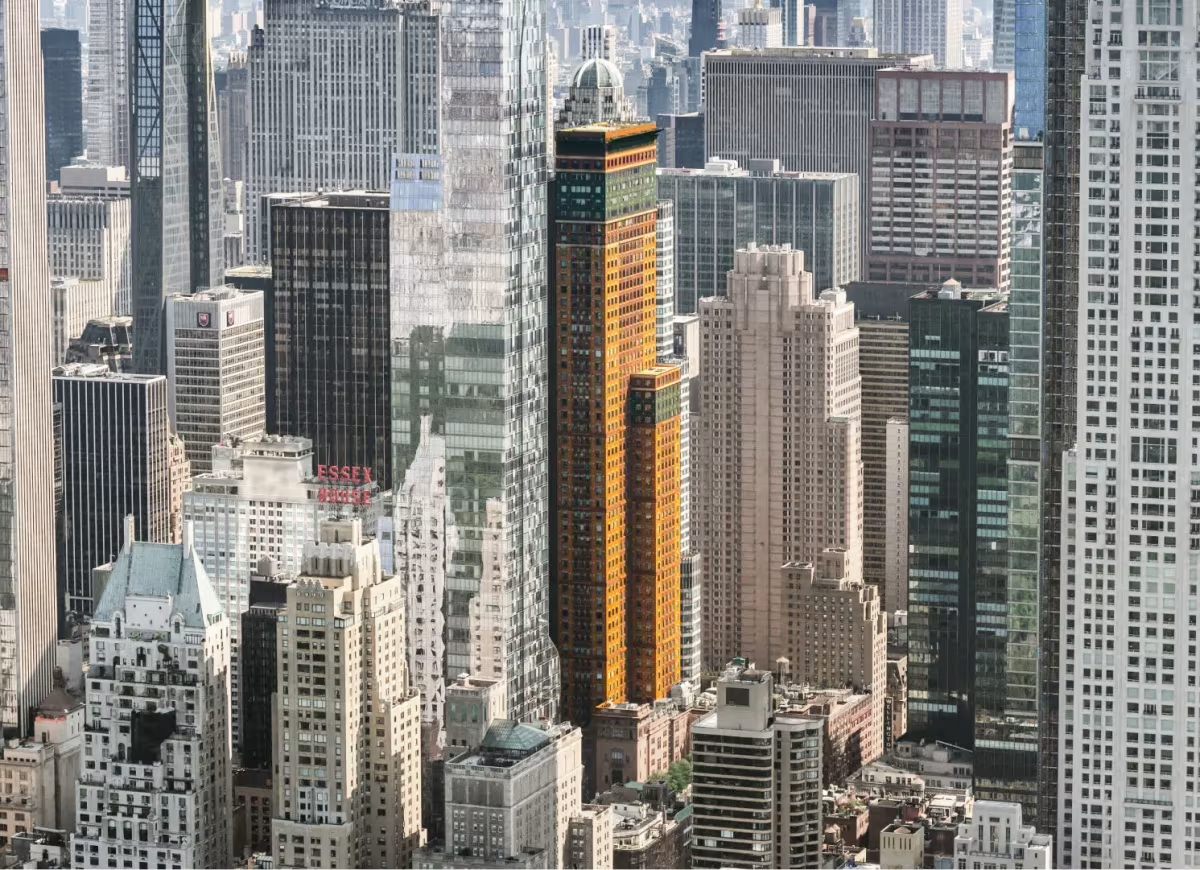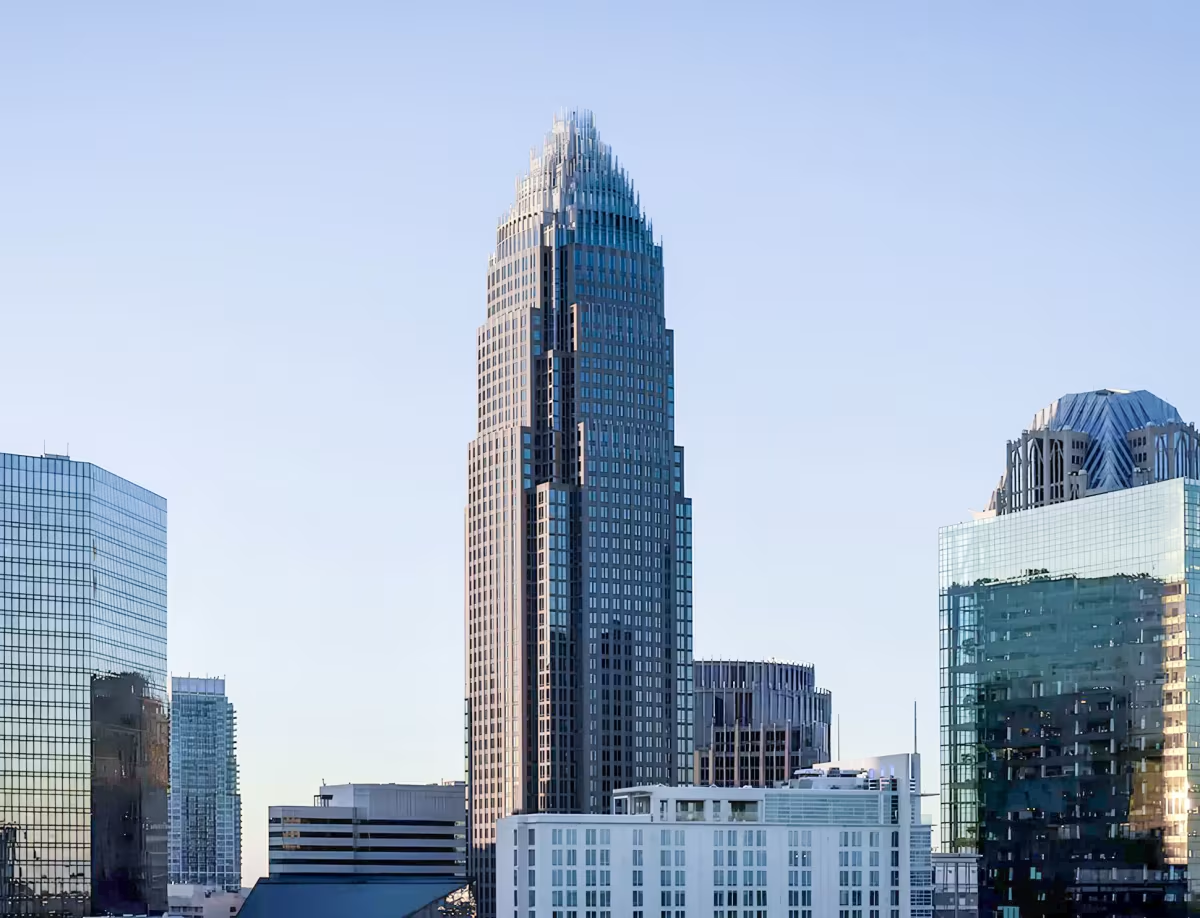Carnegie Hall Tower vs Bank of America Corporate Center


Comparing the Carnegie Hall Tower and the Bank of America Corporate Center is an interesting exercise, because even though they are located in different cities (New York, NY and Charlotte, NC), both were designed by César Pelli & Associates and finished within just one year apart. This gives us the chance to see how the same architect's ideas were expressed in different urban contexts almost simultaneously.
Height & Size
Architectural Style
Both the Carnegie Hall Tower and the Bank of America Corporate Center were designed in line with the aesthetic conventions of the Postmodernism style.
Both buildings were completed when the Postmodernism style was already past its peak. This makes them feel like late echoes of the movement, more reflective of continuity or nostalgia than of cutting-edge design at the time.
Uses
Both the Carnegie Hall Tower and the Bank of America Corporate Center were designed to serve as commercial towers, and that has remained their main use since their completion, serving similar roles in the urban fabric.
The Bank of America Corporate Center also provides 1200 parking spaces.
Structure & Facade
Both towers share the same structural solution, a Framed Tube In Tube system.
A tube-in-tube system combines a reinforced central core with a perimeter of columns connected by floor slabs. This arrangement creates a stiff structure that resists both vertical and lateral forces efficiently.
However, when it comes to the facade, both buildings use different approaches. The Carnegie Hall Tower uses a Masonry facade, while the Bank of America Corporate Center uses a Curtain Wall facade.
A Masonry facade like the one seen in the Carnegie Hall Tower features a heavy masonry skin that gives it a more clasical look, while a curtain-wall facade like the one seen in the Bank of America Corporate Center uses a lightweight glass curtain wall hung from the structure.
| Carnegie Hall Tower | Bank of America Corporate Center | |
|---|---|---|
| César Pelli & Associates | Architect | César Pelli & Associates |
| 1987 | Design Ended | 1988 |
| 1988 | Construction Started | 1989 |
| 1991 | Year Completed | 1992 |
| Postmodernism | Architectural Style | Postmodernism |
| Commercial | Current Use | Commercial |
| 60 | Floors Above Ground | 60 |
| 231 m | Height (m) | 265 m |
| 49000 | Built-up Area (m²) | 155613 |
| Framed Tube In Tube | Structure Type | Framed Tube In Tube |
| Reinforced Concrete | Vertical Structure Material | Reinforced Concrete |
| Reinforced Concrete | Horizontal Structure Material | Reinforced Concrete |
| Yes | Facade Structural? | Yes |
| Brick, Glass | Main Facade Material | Granite, Glass |
| HRH Construction | Main Contractor | McDevitt & Street Company |
| Rockrose Development Corp | Developer | Lincoln Properties Company |
| Rosenwasser/Grossman Consulting Engineers | Structural Engineer | Walter P. Moore |
| NY | State | NC |
| New York | City | Charlotte |
| 152 West 57th Street | Address | 100 North Tryon Street |